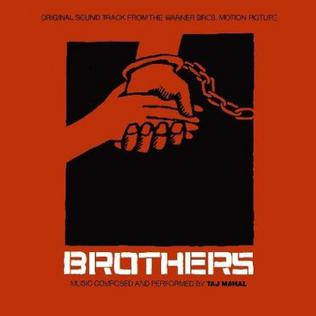
The Rolling Stones are an English rock band formed in London in 1962. Active across seven decades, they are one of the most popular and enduring bands of the rock era. In the early 1960s, the band pioneered the gritty, rhythmically driven sound that came to define hard rock. Their first stable line-up consisted of vocalist Mick Jagger, guitarist Keith Richards, multi-instrumentalist Brian Jones, bassist Bill Wyman, and drummer Charlie Watts. During their early years, Jones was the primary leader of the band. After Andrew Loog Oldham became the group's manager in 1963, he encouraged them to write their own songs. The Jagger–Richards partnership became the band's primary songwriting and creative force.

Peter Edward "Ginger" Baker was an English drummer. His work in the 1960s and 1970s earned him the reputation of "rock's first superstar drummer", for a style that melded jazz and African rhythms and pioneered both jazz fusion and world music.

Ian Andrew Robert Stewart was a British keyboardist and co-founder of the Rolling Stones. He was removed from the lineup in May 1963 at the request of manager Andrew Loog Oldham who felt he did not fit the band's image. He remained as road manager and pianist for over two decades until his death, and was posthumously inducted into the Rock and Roll Hall of Fame along with the rest of the band in 1989.

Let It Bleed is the eighth studio album by the English rock band the Rolling Stones, released on 28 November 1969 by London Records in the United States and on 5 December 1969 by Decca Records in the United Kingdom. Released during the band's 1969 American Tour, it is the follow-up to Beggars Banquet (1968), and like that album is a return to the group's more blues-oriented approach that was prominent in the pre-Aftermath (1966) period of their career. Additional sounds on the album draw influence from gospel, country blues and country rock.

Sticky Fingers is the ninth studio album by the English rock band the Rolling Stones. It was released on 23 April 1971 on the Rolling Stones' new label, Rolling Stones Records. The Rolling Stones had been contracted by Decca Records and London Records in the UK and the US since 1963. On this album, Mick Taylor made his second full-length appearance on a Rolling Stones album. It was the first studio album without Brian Jones, who died two years earlier. The original cover artwork, conceived by Andy Warhol and photographed and designed by members of his art collective, the Factory, showed a picture of a man in tight jeans, and had a working zip that opened to reveal underwear fabric. The cover was expensive to produce and damaged the vinyl record, so the size of the zipper adjustment was made by John Kosh at ABKCO records. Later re-issues featured just the outer photograph of the jeans.

"Sympathy for the Devil" is a song by English rock band the Rolling Stones. The song was written by Mick Jagger and credited to the Jagger–Richards partnership. It is the opening track on the band's 1968 album Beggars Banquet. The song has received critical acclaim and features on Rolling Stone magazine's "The 500 Greatest Songs of All Time" list, being ranked number 106 in the 2021 edition.

Beggars Banquet is a studio album by the English rock band the Rolling Stones, released on 6 December 1968 by Decca Records in the United Kingdom and London Records in the United States. It was the first Rolling Stones album produced by Jimmy Miller, whose production work formed a key aspect of the group's sound throughout the late 1960s and early 1970s.

The Rolling Stones Rock and Roll Circus was a concert film hosted by and featuring the Rolling Stones, filmed on 11–12 December 1968. It was directed by Michael Lindsay-Hogg, who proposed the idea of a "rock and roll circus" to Jagger. The show was filmed on a makeshift circus stage with Jethro Tull, The Who, Taj Mahal, Marianne Faithfull, and the Rolling Stones. John Lennon and his fiancee Yoko Ono performed as part of a one-shot supergroup called The Dirty Mac, featuring Eric Clapton on guitar, Mitch Mitchell on drums, and the Stones' Keith Richards on bass. The recently formed Led Zeppelin had been considered for inclusion, but the idea was rejected.

Raymond Cooper is an English musician who has worked as a session and road-tour percussionist. During his career, Cooper has worked and toured with numerous musically diverse bands and artists including Elton John, Harry Nilsson, Billy Joel, George Harrison, Paul McCartney, Ringo Starr, Pink Floyd, The Rolling Stones, Eric Clapton, Mark Knopfler, David Gilmour, Roger Waters and Art Garfunkel. Cooper absorbed the influence of rock drummers from the 1960s and 1970s such as Ginger Baker, Carmine Appice and John Bonham.

"You Can't Always Get What You Want" is a song by the English rock band the Rolling Stones on their 1969 album Let It Bleed. Written by Mick Jagger and Keith Richards, it was named as the 100th greatest song of all time by Rolling Stone magazine in its 2004 list of the "500 Greatest Songs of All Time" before dropping a place the following year.

Metamorphosis is the third compilation album of the Rolling Stones music released by former manager Allen Klein's ABKCO Records after the band's departure from Decca and Klein. Released in 1975, Metamorphosis centres on outtakes and alternate versions of well-known songs recorded from 1964 to 1970.
Ginger Baker's Air Force was a jazz-rock fusion supergroup led by drummer Ginger Baker.
"Can't You Hear Me Knocking" is a track by English rock band the Rolling Stones from their 1971 album Sticky Fingers. The track is over seven minutes long, and begins with a Keith Richards open-G tuned guitar intro. The main song lasts for two minutes and 43 seconds, after which it transforms into an extended improvisational jam. The entire track was captured in one take, with the jam being a happy accident; the band had assumed the tape machine had been stopped, and were surprised to find the entire session had been captured. Originally they were going to end the song before the jam started, but were so pleased with the jam that they decided to keep it in. Besides the regular Rolling Stones members Mick Jagger (vocals), Keith Richards, Mick Taylor (guitar), Charlie Watts (drums) and Bill Wyman (bass), the track also features conga player Rocky Dijon, saxophonist Bobby Keys, organist Billy Preston and additional percussion by producer Jimmy Miller.
"Factory Girl" is a song by the Rolling Stones which appears on their 1968 album Beggars Banquet.

The Real Thing is a double live album by Taj Mahal, released in 1971. It was recorded on February 13, 1971, at the Fillmore East in New York City and features Taj Mahal backed by a band that includes four tuba players.
"Salt of the Earth" is the final song from English rock band the Rolling Stones album Beggars Banquet (1968). Written by Mick Jagger and Keith Richards, the song includes an opening lead vocal by Richards. It is the second official track by the group to feature him on lead vocal.
"Stray Cat Blues" is the eighth song on the Rolling Stones' album Beggars Banquet. It was written by Mick Jagger and Keith Richards and produced by Jimmy Miller. Miller's production of the song is very representative of his style, featuring a very prominent hi hat beat, droning piano performed by Nicky Hopkins, a mellotron performed by Brian Jones, all electric guitars performed by Richards and vocals from Jagger kept even in the mix. According to Mick Jagger, the song was inspired by "Heroin" by the Velvet Underground, with the intros of both songs being particularly similar.

Happy Just to Be Like I Am is the fourth studio album by American blues artist Taj Mahal.

Brothers is an album by American blues singer-songwriter and instrumentalist Taj Mahal. It was recorded in August 1976 at Conway Recorders Co. in Hollywood and released the following year by Warner Bros. Records. It is the soundtrack to the 1977 film Brothers, with songs that music critic Richie Unterberger described as being "in the mode that Mahal was usually immersed in during the mid-1970s: bluesy, low-key tunes with a lot of Caribbean influence, particularly in the steel drums."

The Rolling Stones in Mono is a box set by the English rock band the Rolling Stones, released by ABKCO Records in September 2016. It contains most of the group's British and American studio albums from the 1960s in mono format, on fifteen compact discs or sixteen vinyl records. All tracks were remastered using the Direct Stream Digital process by Bob Ludwig. The original recordings were produced by Andrew Loog Oldham, Jimmy Miller and the Rolling Stones.















